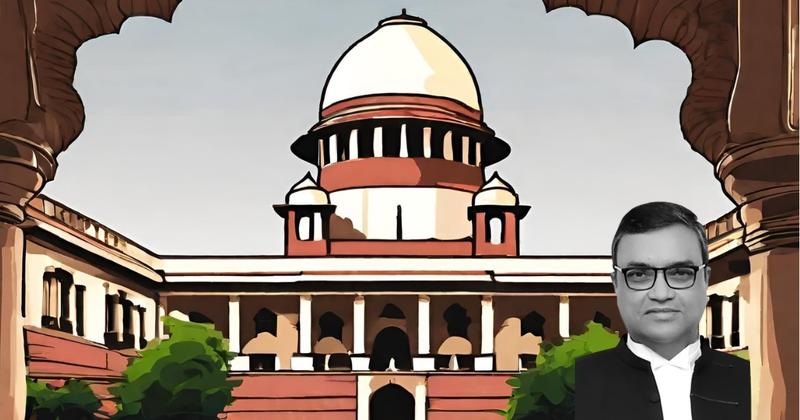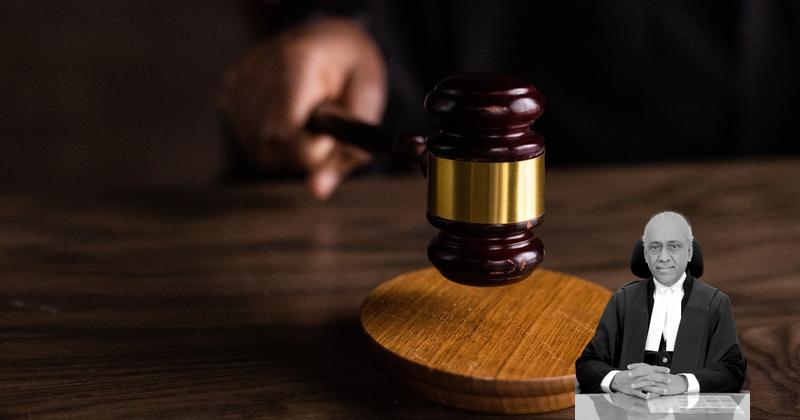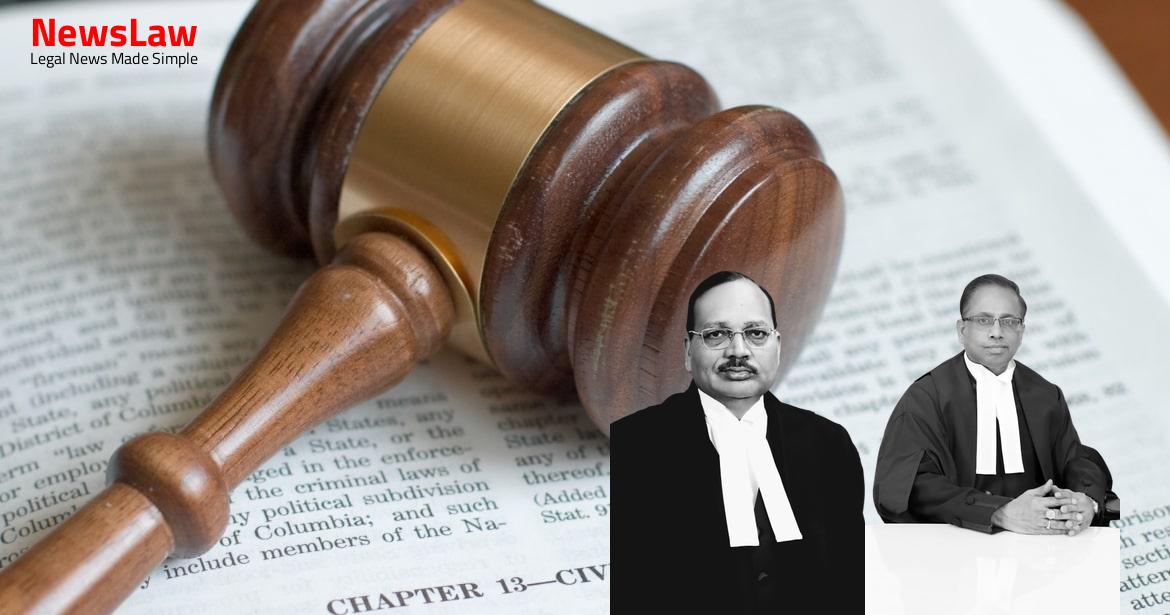The appellants’ grievance is with the imposition of a fixed term sentence of 30 years, without remission, by the trial court, which was affirmed by the impugned judgment passed by the Delhi High Court. 2 Order dated 31.10.2018 passed by the Delhi High Court in Crl. A gold chain belonging to the deceased, and a motorcycle on which the deceased was last seen, were recovered at the behest of A-1; the deceased’s wristwatch, and a black muffler used to strangle him, were recovered from A-2. A-1 and A-2 (present appellants) were also convicted under Section 411, with A-1 additionally being convicted for offences punishable under Sections 420, 468 and 471 IPC. Aggrieved by the impugned judgment, A-1 and A-2 have approached this court, challenging both the conviction and sentence; this court issued notice on the limited question of sentence. Counsel submitted that there was strong evidence supporting good and normal social behaviour, reformation, and possibility of reintegration into society, as per the probation officer’s report, jail conduct report, and psychologist’s report – all of which were prepared in 5 [2003] Supp.
3 SCR 62: (2000) 7 SCC 626
Also Read: https://newslaw.in/supreme-court/legal-analysis-of-claim-for-loss-of-profit-in-delayed-contract/
[para 6] 5 compliance of this court’s orders. 7 [2018] 14 SCR 585: (2019) 12 SCC 460 [para 47] (hereafter ‘ Rajendra Prahladrao Wasnik ’) 8 [2008] 11 SCR 93: (2008) 13 SCC 767
[para 94-95] (hereafter ‘ Swamy Shraddananda ’) 6 State of Maharashtra, State of Haryana v. State of Maharashtra for the submission that if a mere threat for the purpose of ransom or otherwise becomes 9 [2009] 9 SCR 90: (2009) 6 SCC 498 [para 127-128] (hereafter ‘ Santosh Kumar Satishbhushan Bariyar’ ) 10 [2010] 3 SCR 716: (2010) 4 SCC 216
[para 41, 44-46] 11 [2011] 4 SCR 585: (2011) 3 SCC 685
[para 66, 69, 76] 12 [2014] 1 SCR 1047: (2014) 3 SCC 421
It was pointed out that the gruesome nature of the murder of a minor victim (nearly 18 years), despite the appellants being educated and belonging to well-to-do families, reflected that they were well aware and had full knowledge of their actions – of kidnapping, murder, and finally, disposing of the body by burning and dumping the remains in a pond. Counsel conceded that this court in Sriharan (supra) held that only the High Court or Supreme Court had the power to pass a sentence in excess of life imprisonment, but lesser than capital punishment; however, it was pointed out that this court had also denied in that judgment, the proposition that the court awarding punishment should merely impose the punishment of death or life imprisonment, as prescribed in the CrPC. State of Punjab this court, building upon the observations in Bachan Singh, observed that a balance sheet of “aggravating and mitigating circumstances” needs to be drawn where “ mitigating circumstances have to be accorded full weightage and a just balance has to be struck between the aggravating and the mitigating circumstances before the option is exercised ”. The court also laid down a broad two-pronged approach: “(a) Is there something uncommon about the crime which renders sentence of imprisonment for life inadequate and calls for a death sentence? This court also highlighted that in many previous decisions, sentencing was resorted to without considering mitigating circumstances, and without any material on the possibility of reformation of the convict.
State of Rajasthan, (2001) 6 SCC 296 and the unsound way in which remission is actually allowed in cases of life imprisonment make out a very strong case to make a special category for the very few cases where the death penalty might be substituted by the punishment of imprisonment for life or imprisonment for a term in excess of fourteen years and to put that category beyond the application of remission.
If the Court’s option is limited only to two punishments, one a sentence of imprisonment, for all intents and purposes, of not more than 14 years and the other death, the Court may feel tempted and find itself nudged into endorsing the death penalty. It needs to be emphasised that the Court would take recourse to the expanded option primarily because in the facts of the case, the sentence of 14 years’ imprisonment would amount to no punishment at all.” 22 [1961] 3 SCR 440 23 [1979] 3 SCR 1059: (1979) 3 SCC 745 24 [2001] 2 SCR 864: (2001) 4 SCC 458 25 [2001] 3 SCR 656: (2001) 6 SCC 296 26 [1976] Supp.
We, therefore, reiterate that the power derived from the Penal Code for any modified punishment within the punishment provided for in the Penal Code for such specified offences can only be exercised by the High Court and in the event of further appeal only by the Supreme Court and not by any other court in this country. Realising that a life sentence per se can lead to early release of accused upon their undergoing the 12 minimum sentence prescribed under Section 433A, and highlighting that the asymmetry in state rules with respect to minimum incarceration in different kinds of life sentences, this court decided to retain to itself (and the High Courts) the option of imposing what Sriharan termed as “special” or “fixed term sentences”. It is hence clear that the trial courts, are foreclosed from imposing such a modified or specific term sentence, or life imprisonment for the remainder of the convict’s life, as an alternative to death penalty.
Whenever the state proposes and urges for imposition of death sentence, it has to, per force provide material to facilitate the court to carry out the exercise of balancing the aggravating factors with the mitigating circumstances – the test propounded in 13 Bachan Singh and examined in many cases; the recent trend being that the reformative element acquires equal attention. When that stage occurs, and the prosecution seeks a capital sentence, the court has to carry out the exercise of conducting a review of aggravating circumstances (which are already on the record, being factors that lead to the conviction of the accused ) and balancing the mitigating circumstances (which are not matters of the record and have to be adduced by the prosecution and the accused ). (6) That the accused acted under the duress or domination of another person, (7) That the condition of the accused showed that he was mentally defective and that the said defect impaired his capacity to appreciate the criminality of his conduct.” 28
[2022] 9 SCR 452: (2023) 2 SCC 353 14 Verma v.
These guidelines may also offer guidance or ideas, that such a legislative framework could benefit from, to systematically collect and evaluate information on mitigating circumstances. The state, must – for an offence carrying capital punishment – at the appropriate stage, produce material which is preferably collected beforehand, before the Sessions Court disclosing psychiatric and psychological evaluation of the accused. 216.
If the appeal is heard after a long hiatus from the trial court’s conviction, or High Court’s confirmation, as the case may be – a fresh report (rather than the one used by the previous court) from the jail authorities is recommended, for an more exact and complete understanding of the contemporaneous progress made by the accused, in the time elapsed. We, therefore, direct that the criminal courts, while dealing with the offences like Section 302 IPC, after conviction, may, in appropriate cases, call for a report to determine, whether the accused could be reformed or rehabilitated, which depends upon the facts and circumstances of each case.” We hereby fully endorse and direct that this should be implemented uniformly, as further elaborated above, for conviction of offences that carry the possibility of death sentence.” The imperative to conduct evaluation of mitigating circumstances at the trial stage, “to avoid slipping into a retributive response to the brutality of the 16 crime” which this court noticed was frequently occurring in several cases, was underlined, and it was categorically held that the court had to elicit information from the state and the accused. Since the judgment in Sriharan (supra) reserves the power to impose special or fixed term sentences (which may be longer than the minimum specified in Section 433A CrPC – i.e., may extend to considerably long periods, such as 30 years), with only the high courts and this court, it is imperative that this exercise is carried out even in cases where the accused might eventually not be imposed the death sentence. In that event, if ultimately death sentence is not imposed, it is open to the state (or the aggrieved party, under Section 372 CrPC) to appeal against the trial court judgment on the point of sentence; at that stage the evaluation before the High Court would be nuanced, and informed with full materials, about the convict, which otherwise it would not have the benefit of. Given the imperative need for such material to form a part of the court’s consideration, it has to be emphasized that in case the trial court has failed to carry out such exercise (for whatever reason), the High Court 30 See Manoj, para 216 (SCR). Recently, this court, on three previous occasions, was faced with a similar situation – wherein the trial court had sentenced the accused to undergo life imprisonment for the remainder of their life, or without entitlement to remission for a fixed term (of not less than 20 years).
Appeal No.564 of dd 06.07.2021 https://main.sci.gov.in/supremecourt/2021/5351/5351_2021_39_15_28288_Order_06-Jul- 2021.pdf 33 Narendra Singh @ Mukesh @
Case Title: VIKAS CHAUDHARY Vs. THE STATE OF DELHI (2023 INSC 412)
Case Number: Crl.A. No.-002276-002276 / 2022



